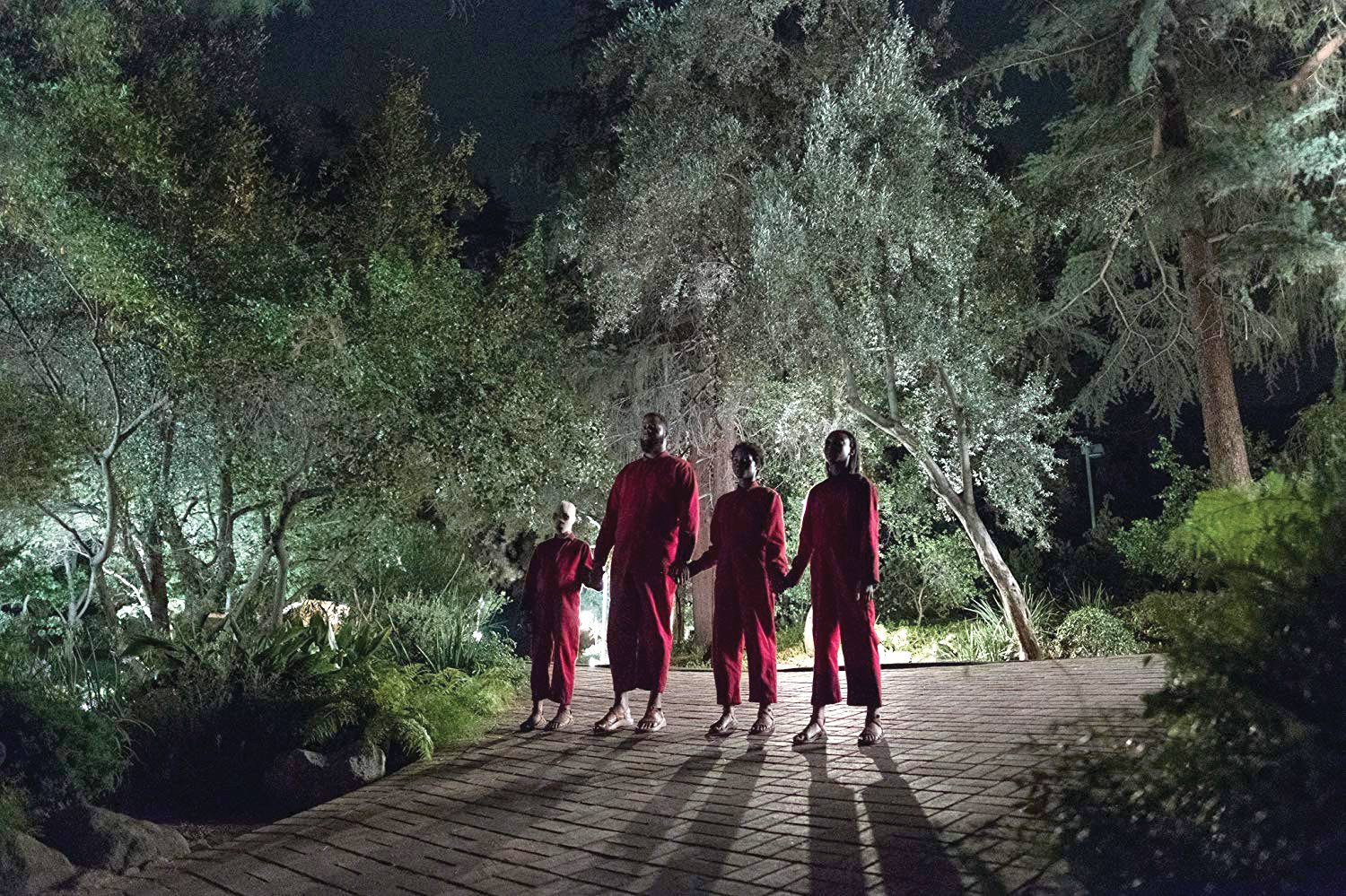
Inspired largely by a 19th century Hans Christian Andersen fairy tale and a 20th century TV episode of “The Twilight Zone,” Jordan Peele’s “Us” succeeds as a finely crafted horror movie, helmed by a director who grasps the importance of scene construction, building tension, and respect for the genre — it’s no coincidence that one of the main characters is a costume mask-wearing boy named Jason and that his mother becomes a killer with mixed motives. But “Us” is provocative without being pointed, a Rorschach inkblot of a movie in which a lot of themes and allegory are smeared on the screen but the audience is left to figure out what it all means, or whether it means anything at all. “Us” is scary and leaves you asking many questions, so mission accomplished on that front. What remains vexing, however, isn’t the notion that the film doesn’t offer any easy answers, but the gnawing feeling that there may not be any answers at all.
Part of this is Peele’s fault, of course. His debut film, “Get Out,” was a brilliant bit of spooky social commentary that cut to the heart of issues like white privilege, racial appropriation, interracial relationships, and more. Peele set a high bar for his follow-up, and with that comes expectations. To his credit, “Us” swings for the fences, and when that happens you sometimes hit a homerun and sometimes you whiff. Think of “Us” as more of a soaring, upper deck foul ball.
Unlike “Get Out,” the racial import of “Us” begins and ends with the central casting, which is not insignificant given the history of the horror genre. The film opens in 1986, with a young African-American girl named Adelaide (Madison Curry) and her family meandering about the Santa Cruz beach amusement park. After winning a Michael Jackson “Thriller” t-shirt, Adelaide wanders into a hall of mirrors, where she encounters an apparently autonomous reflection of herself. She returns to her parents terror stricken and unable to speak, about the incident or anything else.
Fast-forwarding to the present day, an adult Adelaide (Lupita Nyong’o), her amiable but goofy husband Gabe Wilson (Winston Duke), and their two children Zora and Jason (Shahadi Wright Joseph and Evan Alex) are heading on a beach trip, which includes a jaunt to the Santa Cruz boardwalk. Adelaide is noticeably twitchy about the whole thing, finally explaining her childhood trauma to Gabe and leaving Gabe to rightfully wonder why she didn’t mention this to him sooner. Adelaide’s fears are realized when a family of four doppelgängers appear in their driveway, clad in red jumpsuits, wearing one glove, and carrying golden scissors. The intruders force their way into the Wilson’s home and proceed to terrorize their copies. Adelaide’s clone, credited only as “Red,” casts a faraway stare and entones fables about a princess and her shadow (Google Andersen’s fairy tale “The Shadow”) using a guttural voice from hell. The rest of the doppelgängers are either mute or communicate in animalistic grunts, each of them exaggerated, feral versions of their originals.
The most meaningful lesson of “Us” is the talent of Nyong’o, an already accomplished actor who channels two (or three) characters, all of them both similar and distinct. Her emotional range runs the complete gambit, from humor to heroism to terror. Her supporting cast is able, as well, but this is Nyong’o’s vehicle and she confidently takes the wheel.
How the rest of the film unfolds is best left to surprise and discovery, including the fate and function of the Tylers, a slightly snooty white family and pals of the Wilsons, who are also vacationing nearby. The would-be allegory starts with the film’s title, a pronoun connoting plurality that’s also a certain country’s initials. Indeed, when Adelaide asks Red who she and her freaky family are, Red eerily responds, “We’re Americans.” But like much in “Us,” that tantalizing bread crumb doesn’t lead very far. The Michael Jackson/”Thriller” throughline reflects man’s duality, between the outward persona and the demons lurking underneath (an even more apt metaphor given the recent release of the HBO documentary “Leaving Neverland”). There’s a recurring biblical reference to Jeremiah 11:11, which writes of God casting inescapable evil onto his fallen followers (a wider reading of Jeremiah makes clear God’s displeasure over mankind’s idolatry), but might just be there for the mirror image of dual elevens. The Tylers’s teenage girls are twins. Peele juxtaposes The Beach Boys with N.W.A. Even the 1986 charity event Hands Across America figures prominently in the storyline. There’s a lot more.
It all leads down a literal rabbit hole (the film’s prologue oddly references thousands of miles of abandoned tunnels snaking below the United States), full of government conspiracies and furtive motives. If you squint hard, you might see a tie-in to the divides between us, particularly class and culture. There’s also a challenge to consider the true quality of evil and violence, whether our ongoing efforts to insulate us and our families from the misfortunes of the world are just as reprehensible as the evils we want to keep out of sight and mind. But flaw in “Us” (the movie) is that the answer to its example is an emphatic no; while apathy is bad, it’s not as evil as marauding murderers with dubious impulses and aims—it’s never clear why the doppelgängers are compelled to kill their originals, which is a pretty key explanation to grasping the film’s overarching meanings.
Perhaps posing and pondering of all these aspects about “Us” is its own measure of success. But when you stare at a Rorschach test, sometimes you see a glorious peacock, sometimes you see scary dragon, and sometimes you just see an inkblot.